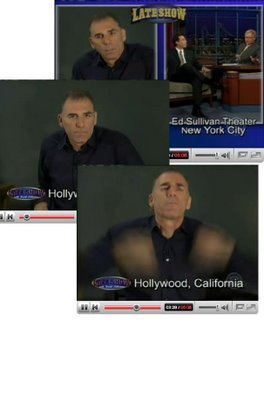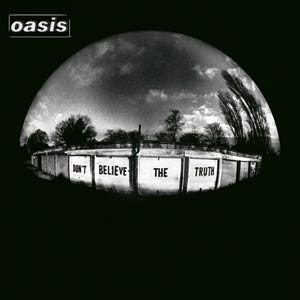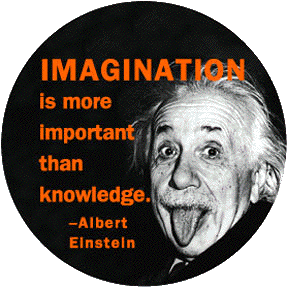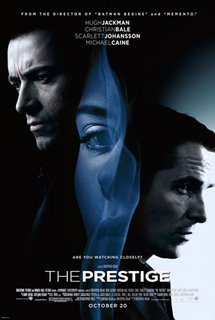Is interpretation something that we teach? I would like to suggest here that it is more a matter of practice: something that is learned.

The question that this introduces, of course, is whether or not there is one, right method for interpreting the Bible. That is, do we posses The Biblical Interpretation Method that is the key to unlocking all of the good stuff in the Bible.
Many would say that they do, in fact, have such a method or at least that they've got something really close that just may need a little tweaking here and there. As such, in certain circles (particularly in seminaries) we develop a "How to Read the Bible" manual. This may include an emphasis on "historical-grammatical" interpretation, or a focus on discerning the "intent of the author," or even methods for determining the "literal" meaning of the text over and above "figurative" senses.
In regards to the literal rendering we might determine certain ways in which metaphors operate: if the text indicates metaphorical or figurative language then the interpretation should be metaphorical. However, in the absence of such an indication all Scripture should be read literally.
This happens not merely in regards to Scriptural interpretation, either. There are many articles and books written on metaphors: how to detect a metaphor, how to classify a metaphor, and how to determine what classification of metaphor we are dealing with. An example is the distinction between a "dead" or a "live" metaphor. A dead metaphor is one that is used so often that its metaphorical value is virtually zero. It functions more literally than metaphorically. In English an example would be "as dead as a doornail." This is a figure of speech that, although it acts metaphorically, it is so familiar that it functions in a literal sense. A live metaphor is one that captures a sense of ambiguity while still generating a description....
The point is that we ponder language and develop methods for interpretation. The same thing holds true of Scripture. We ponder the text and develop methods of interpretation.
No argument at this point. This is a good thing. We all develop interpretive frameworks, that is, we all naturally develop methods for discerning meaning. This is true of speaking as well as writing. When we are children we learn language, and when we go to another country with a foreign language we must learn that language. So, our minds naturally learn what people mean when they say words and/or when they say them in a certain way and when they use certain body language. We have build-in mechanisms that help us learn how to understand each other. The same thing holds true in interpreting a text. Let us call this our interpretive framework: The method we use to interpret a text.
But our interpretive framework is not always something we are conscious of. Most of us just naturally learn how to interpret a language by interacting with people. Or we just learn how to interpret a text as we engage in reading. Consider that it may take years to learn a language in a classroom, but only months to pick up the same understanding by plunging one's self into a culture and engaging people in conversation.
Interpretive frameworks evolve and change. This is not to advocate "relativism" or any such boogeyman it is simply to note how we operate. For example, when we interact with different people and encounter different language our frameworks of interpretation change. Our minds naturally react to changes we encounter in our language. Not only this, but as we interact with the same people who use the same types of language that they have always used we learn to interpret them better. We might notice subtle moves that they make and over time we learn that these subtle things mean something: A husband, for example, might shift his weight right to make himself comfortable before telling a lie to his wife, and the wife learns to determine this meaning over time.

So, our frameworks evolve and change. Same thing when we interpret texts. Our frameworks naturally evolve and change as we encounter texts. We study the same texts and get a better feel for what they are all about. We study new texts and our frameworks continue to change.
Here is the point: It is a danger to solidify the framework and set it in stone. And yet this is often what happens in hermeneutics classes across the country in conservative seminaries. There is a "one way" to look at the text. This stunts the personal growth of your own interpretive framework and suspends the ability to see a text from a different angle or from a new perspective. Not that growth is impossible - as I say, it is simply stunted and slowed.
One of the keys for truly engaging the word of God in a local church community is dialogue. As we engage the Word from varying perspectives it accelerates and expands our frameworks. We see the text from a different side or from a different angle. This diversity challenges preconceived notions, while also simultaneously reinforcing orthodoxy and interpretations that are essential for defining the faith. Ultimately, dialogue amongst the faithful works as a mechanism of safeguard as well as a process for personal and community growth.
One might charge that opening up dialogue is dangerous because it risks a relativistic free-fall: A process where everyone's perspective is equally valid and hence the truth of the text is compromised by the multiplicity of perspectives. Ultimately, it is this line of thinking that has led to many conservatives "fixing" forever and ever a "How To Read The Bible" manual. But surely this is an overreaction. Perhaps in some contexts this is necessary, but certainly not on a widespread scale. The church should never create a hermeneutic that is motivated by fear. This is a purely defensive posture that weakens the mind and heart of the church. In fact, I believe it is the hermeneutic of fear that has led to anti-intellectualism in the church in a far greater way than relativism, Liberalism, or any external threat to the church. A body of believers that is motivated to question their faith internally stands the strongest chance of rebutting the threats to orthodoxy that come externally.
In regards to a hermeneutics of fear we might also ask, "From whence comes your How-To-Read-A-Text manual?" In other words, how did we come about with this correct body of interpretive guidelines and rules? Was it dropped from the sky? Did God inspire an interpretive method? No at all. Rather, it was developed by people like you and I. They may have been much smarter than you and I, but they remain fallible. Furthermore, they came about by these rules inductively: They studies many texts and looked for patterns of similarity. And they, like the rest of us, got a sense of "How To Read A Text". But if this is the case, then the sacred methods that we declare infallible are really only the product of scholars who thought they were a good idea. This is not to say that they should not be take seriously - because we must respect the efforts of the wise. Rather, it is simply to say that no method is infallible. No method escapes the finite touch of mere mortals who are subject to error.

In the end interpretation is a lively exchange, a dynamic dialogue that sharpens the faithful and transforms the community. For this reason it may not even be advisable to teach methods of interpretation - except amongst those who are really interested in it. Better to simply allow people to engage the text. As they engage their interpretative frameworks will evolve and grow and they will, quite naturally, apply their learning to other areas of Scripture. It is in this context that the church can renew a dynamic study of the Word and revitalize an appreciation for the authority of the canonical text. True dialogue will accomplish more in this regard than a thousand sermons because preaching tells us what we should be, but personal encounters make us new.

 Toebe's conclusion: She felt like she was "addicted" to the Internet. She's not alone.
Toebe's conclusion: She felt like she was "addicted" to the Internet. She's not alone.



























